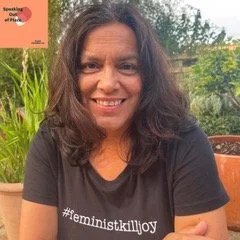How Do We Protect Democracy? Writers, Philosophers & Thought Leaders Speak Out
/Writers, Philosophers & Thought Leaders Speak Out
How can we be more engaged global citizens? How do we fight for truth and protect democracy in a post-truth world? What influence do billionaires have on politics, journalism, and the technology that shapes our lives? Deborah Cahn, Daniel Susskind, Carlos Moreno, Lee McIntyre, Julian Lennon, Darryl Cunningham, and Arash Abizadeh on the future of democracy.




















